Online Donations
TIRF’s online donations are accepted via Keela and PayPal. Use either option below to make a donation by credit or debit card.
Donations by check are accepted, as well. Please use the information below.
Donate via Keela (Preferred)
Donate via PayPal
Donations by Mail
To donate to TIRF by mail, please complete the form provided below and mail it with your check to: TIRF, PO Box 332, Interlochen, MI, USA 49643-0332. TIRF’s tax identification number is 54-1939288.
Cash Donations: Cash donations, of course, are welcomed. Consider a once-a-year donation or even a recurring donation.
Required Minimum Distributions: If you pay taxes in the United States, donating to TIRF via your required minimum distributions (RMDs) is an excellent way to support our mission. What are RMDs? The U.S. IRS (Internal Revenue Service) requires individuals to annually withdraw a minimum amount of savings from their retirement accounts when they reach a certain age. Charity Navigator provides some advice on this form of giving and links externally to IRS pages that will help you learn more about the tax savings involved in RMD giving. Click here to visit Charity Navigator’s website.
Workplace Giving: Another unique approach you might take to donate to TIRF is through workplace giving. Many employers – for-profit companies, nonprofit organizations, universities, and governmental employers – offer workplace giving programs. Through this form of giving, you are able to make tax-deductible donations to TIRF that are automatically withdrawn from your paycheck. In some cases, employers match their employees’ gifts. If you’re interested in this way of giving, please consider contacting your Human Resources office to see if workplace giving is offered by your employer.
Planned Giving: One of the most long-lasting, significant forms of giving to nonprofits is through planned giving. Such gifts are typically designated to nonprofits in a supporter’s will and are not donated until the donor passes away. Planned gifts can include a designation of checking and savings accounts; non-cash assets such as life insurance policies, retirement accounts, and securities; and real property such as land, buildings on the land, and other types of property. Donor Search provides additional information that may be helpful to TIRF supporters. Click here to learn more. If you are interested, TIRF can provide access to an experienced Chicago-based attorney (free of charge), who can help answer questions you might have.
Beneficiary of a Life Insurance Policy: Did you know that you can designate TIRF as the beneficiary of your life insurance policy? This form of giving – while considered as one form of planned giving – allows the Foundation to receive your policy’s payout, or a percentage of it, upon your passing. Also, if you’re currently paying into a life insurance policy, you have an option available to you to transfer the policy to TIRF. Doing so would entail that you no longer need to make the regular payments for the premium. Upon the policy’s transfer, the Foundation would be able to decide whether to keep paying the premium regularly or cash it out. Forbes’ website shares more detailed information on this topic. Click here to learn more. If this is a form of giving you’re interested in, we’d be delighted to hear from you.
Giving of Time and Talent: TIRF Trustees and many friends of TIRF volunteer time and talent as a way of contributing to TIRF. TIRF depends upon the expertise and energy of many volunteers serving on TIRF projects, such as reviewing grant applications, giving presentations, developing curriculum, and mentoring others. Since 2010, our Trustees alone have collectively donated nearly 50,000 hours of their time to support TIRF. To find out how you might volunteer to support TIRF, please email us at [email protected].
This section of TIRF’s website contains links to non-TIRF websites that are being provided here for informational purposes only. TIRF is not responsible for the content of any third-party website, and the inclusion of any links here or anywhere on TIRF’s website does not constitute or imply any recommendation, approval, or endorsement of such external websites or their contents.
Click each person’s picture to read more about why they give to TIRF. And stay tuned to learn from others about why they support the Foundation!
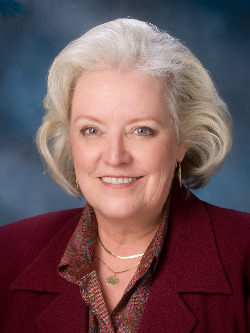
Kathleen Bailey
Professor of Applied Linguistics Monterey Institute of International Studies
TIRF is a grassroots foundation that was started through the vision of TESOL leaders in the late 1990s. Here TIRF President Kathi Bailey shares her recollections of the grassroots movement that led to TIRF’s inception and gives three reasons why she gives to TIRF.
TIRF – now The International Research Foundation for English Language Education – was originally the TESOL International Research Foundation. I give to TIRF primarily for three reasons: its history, its value, and its stewardship.
1. I know TIRF’s history as a fledgling foundation.
TIRF was officially launched by a vote of the TESOL Board of Directors in June 1998, but the work to establish this foundation began long before that. TESOL President Joy Reid appointed a group of senior leaders in our field, the Association Advancement Committee, to explore the possibility of setting up a foundation to promote the work of our professional association — TESOL – Teachers of English to Speakers of Other languages, Inc. That group consisted of Jim Alatis, Ed Anthony, Russ Campbell, Jodi Crandall, Rick Jenks, Joan Morley, and Dick Tucker – people who knew both the profession and the TESOL association well.
After months of work the Association Advancement Committee concluded that a foundation to support research in our field was both needed and possible. A major, haunting question hung in the air, however: Where would the money come from? ESL and EFL teachers are by no means are among the highest paid professionals. Would the foundation be able to raise sufficient funds to sustain an organized, long-term research program to address the critical international needs related to English language education?
In June, 1998, after careful consideration and debate, the TESOL Board of Directors voted to provide the foundation with the “seed money” to get started. Upon hearing of this vote, former TESOL President Joan Morley made a substantial personal contribution to help get the foundation started.
2. I know TIRF’s potential value to researchers around the world.
Currently TIRF awards Doctoral Dissertation Grants to PhD students who have advanced to candidacy. Researchers need not be TESOL members or US citizens to apply for this funding.
I remember quite well the struggle of trying to finish my PhD while working — first part-time as a teaching assistant and research assistant at UCLA, and then later as a lecturer at the Monterey Institute of International Studies. I was very grateful for these employment opportunities, of course, but what a blessing a research scholarship would have been! As I read the proposals for research funding submitted to TIRF, I am always re-convinced that the foundation’s resources are being put to excellent use. And if only there were more money to give! Each year deserving proposals go unfunded because the foundation’s monetary resources are not as bountiful as I would wish.
3. I know how TIRF is run and how its stewards work to promote its goals.
TIRF is a foundation which consists largely of an all-volunteer Board of Trustees. For the first several years of its history, TIRF existed in very economical quarters – first at TESOL’s Central Office, then at Georgetown University, and finally at the University of Maryland, Baltimore County. Now the foundation’s office is housed where I teach, at the Monterey Institute of International Studies in Monterey, California. Along with my graduate assistant, Ryan Damerow, I work to carry out the foundation’s initiatives while keeping operating costs to a bare minimum.
The Board of Trustees currently includes language teachers, teacher educators, and applied linguists from various countries as well as leaders in business and industry. Over the years, board members represent such international entities as IBM, the Disney Corporation, National Geographic, the Investment Group of Santa Barbara, Pearson Education, the Cultura Inglesa of Sao Paolo, Cambridge ESOL, the British Council, the Center for Applied Linguistics, and Heinle Cengage Publishers. All of these trustees volunteer their time and energy, and all of them contribute financially to TIRF. There is no “fat” in the foundation’s budget and the trustees are all committed to raising money to promote research and influence educational policy in our field.
These are the main reasons why I give to TIRF.
I hope you will join me in contributing to this important endeavor.
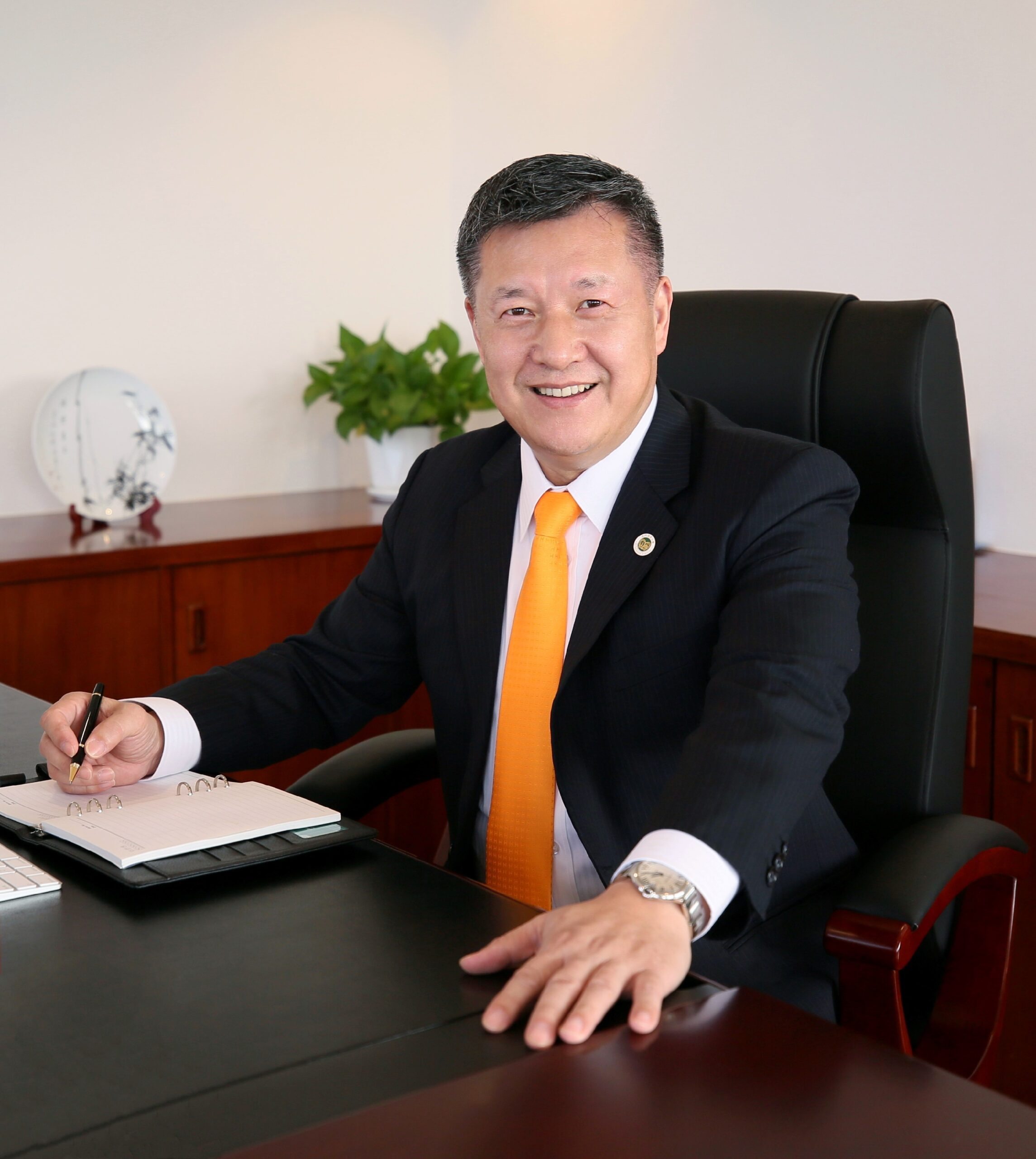
Jun Liu
I donate to TIRF because I benefit from and believe in the Foundation.
In the field of language teaching, the future lies in its research. It is from research findings that we are able to improve the quality of education. In order to address the emerging challenges that stem from the increasing role English plays in the world, we need to conduct research. Similarly, we face the responsibility of enhancing language skills for those who need the English language to be more effective in the competing market, thus research is fundamental.
Reflecting on my own career, I have evolved from an English learner to an English professor. I struggled when learning English in my earlier days and I have equally exhausted myself in teaching for many years. It was not until I found myself engaged in research that I realized the importance of pedagogical principles, approaches, and perspectives. The results of research have provided us with better information about our teaching. I am a firm believer in and practitioner of research. I strongly support the notion that the field can only move forward if we are committed to rigorous research and to the dissemination of research findings.
As a Past President of TESOL, I have witnessed the enthusiasm our young professionals and graduate students demonstrate when doing research and sharing their results with larger professional communities. I have also joined other researchers in seeking external funding to support large-scale research. But the problem we face in the field is the lack of funding.
Through my years of involvement on TIRF’s Board of Trustees, I am convinced that our individual contributions, when pooled together, will make a difference. TIRF needs us and we need TIRF. I feel that to donate to TIRF is a way to empower ourselves. I highly encourage you, my colleagues in language education, to seriously consider giving to TIRF. Regardless of the amount, your gift shows engagement and hope. Perhaps most of all, our donations demonstrate our commitment to empowering individuals worldwide through language teaching that has been informed by research.
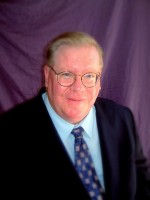
Chris Bernbrock
Offerings Executive, IBM Global Public Sector Marketing
Chris Bernbrock has taught ESL and administered programs in Thailand, China and Southern California. He has an M.A. in TESL and two additional years of doctoral work in Applied Linguistics at UCLA, as well as an M.B.A. from UCLA. In his work with IBM and the TIRF Board of Trustees he has brought a global perspective that balances his expertise in business with his abiding interests in language teaching, learning and research.
I give to TIRF out of respect and gratitude in memory of one of its founders – Professor Russell N. Campbell. To give a little something back in a field that was for me so formative early on in life; and because I believe wholeheartedly that students young and old as individuals hoping to participate more fully in an increasingly global world, as well as businesses and whole economies, will benefit enormously from the impact the foundation can have on language policy and planning over the years ahead.
Russ Campbell was my teacher, my mentor, my boss for a while, and was always a role model who helped me and so many others achieve more and become more than we knew we could. Professor Campbell brought out the best in us, always set the bar a little higher and taught a whole generation of us the importance of always striving to be our best and what it meant to be truly world class in all we undertook – in our teaching, in our research, in running programs and for some of us in other areas later. Russ personified the best traditions of academe and what it meant to be collegial in our collective responsibility to make the world a better place, and made those of us fortunate enough to have been around him all the better for it. Little did I know or fully appreciate then, but these were lessons in life far beyond the field of applied linguistics. One of the primary reasons I therefore give to TIRF is out of respect in grateful memory of Professor Campbell.
I left the field of Applied Linguistics a couple decades ago, an example of what can happen when someone goes overboard in an area like English for Specific Purposes. For me it was English for Business, and I’ve been in business ever since – with IBM. But what I learned during my ten years in TESL and Applied Linguistics, on both sides of the desk in the classroom, in running programs abroad and in doing research, helped me more in my subsequent career as a businessman than my MBA or any other business training. It was what I learned about being professional from ESL (and from those I studied and worked with throughout those years) that was so very formative for me in my own working life – and has stayed with me ever since. And as business continues to become increasingly global in nature, a background in TESL and Applied Linguistics turned out for me at least to be invaluable in the work world of today. For this reason, too, I choose to give to TIRF – to give a little something back to a field that gave me so much early on in life.
Finally, I wholeheartedly believe in what TIRF is all about. Just as there has been a focus of research and efforts to address the issues of a ‘digital divide’ in the increasingly wired and rapidly evolving world of information and communication technologies these days, so too there is an even more fundamental ‘linguistic divide’ that is limiting the access and ability of individuals and whole economies to participate, compete, survive and thrive in this new interconnected world. This ‘linguistic divide’ is largely about having the English language skills and proficiency required for so many of today’s jobs throughout the world in this 21st century workplace. The simple reality is that some level of English is required for an ever growing number of higher level jobs, particularly as economies continue to evolve in a knowledge-intensive world of cross-border trade and commerce. Addressing the issues of this ‘linguistic divide’ has become strategically imperative for governments, education systems and the private sector in workforce development and economic policy and planning – and TIRF is the one organization with a mission, in part, to address these issues. For this reason also, I give to TIRF.
We all have our own different reasons for why we give to this foundation. These are mine. I hope you will decide to give, or continue to give, to TIRF as well – maybe even share your own reasons ‘why’.

H. Douglas Brown
Director, American Language Institute, San Francisco State University
TIRF held its first breakfast meeting to honor its donors at the 2004 TESOL Convention in Long Beach. Marge Campbell, the wife of Russ Campbell, one of TIRF’s founders — was the guest of honor. Our speaker, Dr. H. Douglas Brown (a former student of Russ Campbell) shared these remarks about why he supports TIRF.
We language professionals, along with teachers, social workers, and a few other professionals at the bottom of the pay scales of the world, are accustomed to clipping coupons, shopping wisely, balancing our checkbooks, and regularly asking the old question, “Why is there so much of the month left at the end of the money?”
We’re also an exemplary assortment of forward looking, socially responsible, caring people who for a number of intrinsic motives, have a conviction that the world will be a better place if we give liberally to causes which might otherwise get swept under political budgetary rugs. And so, somehow our paltry budgetary pies manage to have a significant wedge devoted to “charitable contributions.” It’s this latter streak of altruism that brings daily heaps of mail to our front doors asking us to give, give, and give some more to save the whales, stop deforestation, plug the ozone layer, alleviate hunger, cure incurable diseases, promote tolerance, end racial discrimination, educate the poor, support saintly politicians in their quests for power, and on and on.
The trouble with this barrage of noble pleas from far and wide is that once you make the studied decision to give once to your charities of choice, an endless inflow of “now that you’ve given once, won’t you give even more” correspondence is launched. And the pile of requests gets higher and higher.
Here is where TIRF comes in. TIRF is unique among all these suitors for your money. It is the only organization that transcends national affiliations and identifies English language teaching research as its sole purpose. TIRF is focused, it’s within your own profession, it’s global, it’s already making a difference, and your contribution, however great or small, will make significant changes worldwide. TIRF is the kind of cause that can help citizens of the world to seize the power of language from whatever socioeconomic cards have been dealt to them. It can help ministries of education to address policy and pedagogical issues in the face of low national budgets and resources. Children, teens and young adults will be offered opportunities to “be all that they can be” in a global society.
And what’s more, give once a year to TIRF and they won’t keep pestering you with a torrent of requests . . . . once you make a donation to TIRF you won’t be contacted again until the next year!
Why do I give to TIRF? Why does TIRF surface to the top of the zillions of missives asking me for money? Because contributing to TIRF provides a worthy chance personally to make a big difference in a world of need, and to see immediate tangible results in the research it supports. If you haven’t already done so, may I entreat you to do likewise?

Liying Cheng & Andy Curtis
Dr. Liying Cheng and Dr. Andy Curtis work as teachers, teacher educators, authors, and researchers in Canada. Dr. Cheng is originally from the People’s Republic of China and Dr. Curtis is from England. They have both taught in Hong Kong as well, and bring an international perspective to their work.
We give to TIRF together partly as this enables us to combine our financial resources in order to honour our commitment to the Foundation. It is also appropriate that we give together as one of the goals of TIRF is “launching a coordinated effort among ESL/EFL educators,” and it is this kind of collaborative effort that we want to support through collective giving. It is important for us that TIRF is a non-profit organization, as there are already more than enough organizations making money through the global EFL/ESL industry.
As the two of us are relatively early on in our professional lives, for us, TIRF is part of the notion of “pay it forward.” We have been extraordinarily lucky to have been supported in so many ways by mentors and guides such as Kathi Bailey, who has helped us understand the importance of supporting an organization like TIRF. Giving to TIRF is for us one way of doing more than simply saying “thank you.” It is a way of taking action that helps to create new opportunities as a result of the opportunities that have been presented to us. Like most supporters of TIRF, we began our professional lives in classrooms, so another reason we give to TIRF is because an important part of the foundation’s vision Statement is “to improve classroom practice” and to “inform educational policy,” both of which we feel especially strongly about.
For better and for worse, “knowledge is power,” and that knowledge cannot be expressed without language. Consequently, those with little or no access to the world’s dominant languages and cultures may not have the same opportunities as those with access. Likewise, the dominant languages and cultures of the world have much to learn from those that are not dominant if we are to increase understanding and reduce conflict. Therefore, another reason we give to TIRF is their Vision of reaching “beyond traditional information networks to develop a sustained dialogue among a globally dispersed community of researchers, educators, policy-makers, and citizens.” We believe that we long ago stopped living in a political world, in spite of what our politicians tell us. We now live — and have lived for some time — in an economic world, rather than a political one. This means that financial support of the work of organizations like TIRF may do more than political rhetoric to help improve language education, especially ESL and EFL.
We are grateful for this opportunity to “pay it forward” through supporting the work of the foundation and grateful to all of our guides and mentors in the field of TESOL. We believe our contributions will help others to grow as well.
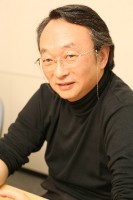
Kensaku Yoshida
Dean, Faculty of Foreign Studies, Sophia University, Tokyo, Japan
We all know that English is no longer simply the language spoken by its native speakers. It is also a language used in different forms in many parts of the world as official or auxiliary languages. Furthermore, it is a language which is used as the common means of communication around the world wherever people who do not understand each other’s language come together. The significance of TIRF, I believe, lies in acknowledging this ‘international’ nature of English, and offering its help and resources to people working in various areas of English language education around the world.
There are researchers in many Asian countries who do not have the funds necessary to conduct research to improve English education in their region. Asia TEFL, which is still a young international organization (but with a membership of close to 7000 from over 35 Asian countries) gives Asian scholars and teachers an international venue in which to share the fruits of their research with people from other countries. The ultimate goal of the organization is to develop some kind of Asian Standards for the teaching of English for international communication in Asia.
The development of such local organizations, I believe, is essential if we are to advocate the role of International English as a common means of communication among people of different linguistic and cultural backgrounds. However, there are problems, the major ones being funding and professional help. Many researchers and teachers in the world do not have the money or the time to study in renowned institutions, most of which are located in English-speaking countries. However, they are working extremely hard every day to improve the English levels of the adults and children in their countries.
I believe TIRF has the potential and the responsibility to provide the two most essential forms of assistance to the international EFL community, i.e., funds to conduct research to improve English education in the local areas, and to provide professional assistance to the researchers and teachers in these areas. It’s not just the money that’s important. Providing professionals to help with research projects is, I believe, just as important, if not more so.
I believe that with the people involved in its organization and activities, TIRF can accomplish the two goals mentioned above. However, for the foundation to do its job, it needs people who are willing to contribute to its cause. I have donated to TIRF because I believe in the importance of the role the foundation can play in assisting in the teaching of English as a means of international communication.

Liying Cheng & Andy Curtis
Dr. Liying Cheng and Dr. Andy Curtis work as teachers, teacher educators, authors, and researchers in Canada. Dr. Cheng is originally from the People’s Republic of China and Dr. Curtis is from England. They have both taught in Hong Kong as well, and bring an international perspective to their work.
We give to TIRF together partly as this enables us to combine our financial resources in order to honour our commitment to the Foundation. It is also appropriate that we give together as one of the goals of TIRF is “launching a coordinated effort among ESL/EFL educators,” and it is this kind of collaborative effort that we want to support through collective giving. It is important for us that TIRF is a non-profit organization, as there are already more than enough organizations making money through the global EFL/ESL industry.
As the two of us are relatively early on in our professional lives, for us, TIRF is part of the notion of “pay it forward.” We have been extraordinarily lucky to have been supported in so many ways by mentors and guides such as Kathi Bailey, who has helped us understand the importance of supporting an organization like TIRF. Giving to TIRF is for us one way of doing more than simply saying “thank you.” It is a way of taking action that helps to create new opportunities as a result of the opportunities that have been presented to us. Like most supporters of TIRF, we began our professional lives in classrooms, so another reason we give to TIRF is because an important part of the foundation’s vision Statement is “to improve classroom practice” and to “inform educational policy,” both of which we feel especially strongly about.
For better and for worse, “knowledge is power,” and that knowledge cannot be expressed without language. Consequently, those with little or no access to the world’s dominant languages and cultures may not have the same opportunities as those with access. Likewise, the dominant languages and cultures of the world have much to learn from those that are not dominant if we are to increase understanding and reduce conflict. Therefore, another reason we give to TIRF is their Vision of reaching “beyond traditional information networks to develop a sustained dialogue among a globally dispersed community of researchers, educators, policy-makers, and citizens.” We believe that we long ago stopped living in a political world, in spite of what our politicians tell us. We now live — and have lived for some time — in an economic world, rather than a political one. This means that financial support of the work of organizations like TIRF may do more than political rhetoric to help improve language education, especially ESL and EFL.
We are grateful for this opportunity to “pay it forward” through supporting the work of the foundation and grateful to all of our guides and mentors in the field of TESOL. We believe our contributions will help others to grow as well.

Michael McCarthy
Emeritus Professor of Applied Linguistics, School of English Studies, University of Nottingham; Adjunct Professor of Applied Linguistics, Pennsylvania State University & University of Limerick
Mike McCarthy has taught English and done teacher training for forty years, in the UK, the Netherlands, Spain, Sweden, and Malaysia. His research interests include corpus linguistics, discourse analysis, and the teaching of speaking. Here he shares his thoughts about “giving back” to the field.
I give to TIRF for a couple of reasons. Most important for me is the opportunity to give back something to a profession from which I’ve done very well during my 40 years of involvement in it. I’m privileged – I’ve enjoyed a well-paid career in a variety of good private-sector schools and comfortable university environments. In the universities I’ve worked in I’ve been able to apply for and get funds to do research that I wanted to do, attend conferences and bid for resources. The books that I’ve published have been successful and brought me in an outside income that has made my life even more comfortable. I’ve also been privileged to travel a lot in connection with our profession and it’s on some of these trips that I’ve seen just how many teachers struggle with poor resources, uncomfortable conditions, and few or no opportunities to take time out to do research or improve their professional qualifications. And yet I am no better than them, no more deserving as a human being to be given professional opportunities. I see TIRF as one way that we can give such teachers opportunities to stand back from the job for a while and investigate some subject that they are interested in and which will benefit them professionally and benefit the communities in which they work. I also like TIRF’s encouragement to researchers to forge links with researchers in other countries. This can only help to build bridges in a troubled world. I give to TIRF what I feel I can afford, and I know that everyone who gives in the same way, whether a small or large donation, will be making a difference, and giving back in however small a way, to a profession from which we in the privileged sectors of education have all gained so much, both materially and spiritually.

Diane Larsen-Freeman
LSA Director, University of Michigan
At the 2005 TESOL Convention in San Antonio, TIRF held a breakfast to honor its donors — in particular, former TIRF Board member and founding donor, Joan Morley. The breakfast was supported by Alta Books and a grant from the Spencer Foundation. Our guest speaker, Dr. Diane E. Larsen-Freeman, has kindly allowed us to post her remarks.
Why do I give to TIRF? Well, since I direct the English Language Institute at the University of Michigan, I thought that it would be appropriate to answer this question by using a multiple-choice format, just as you might find on one of our Michigan tests.
Why do I give to TIRF?
A. Because two of my best friends called me up to practice their fund-raising approach, and I didn’t have the heart to tell them it needed work.
B. Because I have never before in my life been asked to speak for only 5 minutes, as I was for this morning’s TIRF event.
C. Because another dear friend has given so generously over the years to TIRF, our honoree on this occasion, Joan Morley.
D. All of the above
Do you want to guess the correct option?
Yes.
The answer is D, all of the above.
Let me review all the options and explain why D is the correct answer.
Option A is correct because two of the TIRF Board members, who shall remain anonymous, did call me up and ask me to make a donation. While their approach may have needed work, their enthusiasm and their commitment shone through, and they were very persuasive…so I signed up.
Option B is correct because it is true that I have never been asked to speak for only 5 minutes. However, what was more noteworthy than that was after I agreed to speak, my e-mail in-box lit up with expressions of gratitude from many of the illustrious members of the TIRF Board. From this fact, it was clear to me that the two committed individuals mentioned in Option A are joined by equally enthusiastic and dedicated colleagues on the TIRF Board, an observation that also inspired me to make a contribution.
While on the theme of gratitude, there is another reason I want to offer for my donation. Although I have not benefited directly from a TIRF grant, I know that I have been privileged by my connection with TESOL. I can’t imagine another field where I would be able to indulge my diverse interests in language, learning, and teaching, cultivate an attitude of inquiry, contribute in some very small way to international/intercultural understanding and social justice, and, oh yes, earn a living to boot. TESOL has given me that. And so, my contribution to TIRF is less about giving than giving back.
Option C is correct because Joan Morley has been my friend for decades, and because all that time, I have felt her generous spirit. It seemed that I would be honoring Joan’s spirit of generosity by doing my part. If TIRF finds a few more Joan Morleys or many more Diane Larsen-Freemans as donors, it will be able to sustain its good work for many years to come.
Option D is correct because there are so many good reasons to give to TIRF. TIRF encourages TESOL researchers to do good work and to make a difference in the world as the findings from their research inform and enrich the learning and teaching of English around the world. And that is reason enough for me!
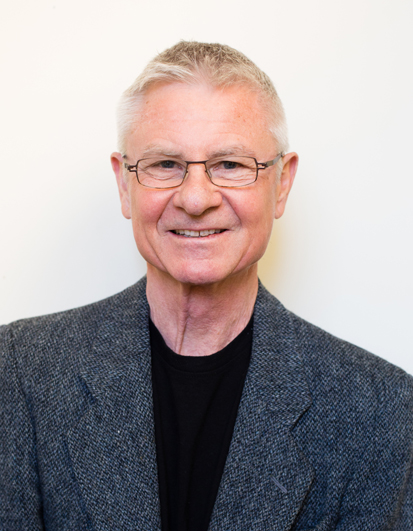
David Nunan
President, Anaheim University; Emeritus Professor, University of Hong Kong
David Nunan is President of Anaheim University and Emeritus Professor at the University of Hong Kong.
I have been involved in work with not-for-profit organizations for many years now, most notably The Smith Family, a charitable organization in Australia that provides financial and emotional support to enable disadvantaged children in Australia to stay in school, and the Rose Foundation, a hospital in Cambodia that does what it can to help orphaned and badly injured children stay alive. These are good and worthy charities and causes. Supporting them will always get you brownie points, if brownie points are what you want. Whenever I suggest to friends visiting Cambodia that they take half a day out of their busy sightseeing schedules to visit the children’s hospital, they usually take me up the offer and never fail to leave without tears in their eyes and donations on the table.
I also have the honor of working with TIRF, an organization that is not quite as sexy in the work that it does. Indirectly, however, the work of this foundations does is just as important as the organizations mentioned above. The Smith Family and the Rose Foundation are front-line charities. Go into classrooms in the western suburbs of Sydney or walk along the concrete floor of the children’s ward in Phnom Penh and you can see, at first hand, the results of any contribution you might have made. You can see first hand the diploma in the child’s hand in Sydney or the healing scars of the burns victim in Phnom Penh.
TIRF is not quite like that. Its work can be described as “second-line.” Interestingly, however, TIRF’s mission is fundamental to the Smith Family in Australia and the Rose Foundation in Cambodia. Without access to high quality instruction in English, immigrant and refugee children in Australia will never hold a diploma in their hands. Without a sophisticated command of English, young Cambodian doctors will not be able fully to benefit from guided instruction in surgical procedures from visiting surgeons from Europe, North America, Australia and other parts of Asia. Thus the work of TIRF, by supporting research on English language education and use worldwide enables people to carry out other important life goals. It is a truism that English has become the global language. However, unless you travel a lot (and by a lot I mean the 150,000 kilometer a year club!), you may not be aware of just how pervasive English has become. Despite the efforts of a relatively small number of individuals, establishing a solid research agenda for English language education and supporting that agenda financially and in other ways has not been a priority. It isn’t sexy, and, I agree. But, it is essential. The challenge for TIRF, and the challenge for all committed language educators around the world, is to put what they do in perspective and to see that their work is fundamental to saving lives and creating better futures for the people they touch.
TIRF aims to find the resources to support research in English language education. It may not be sexy, and it may be behind the scenes; but in the medium to longer term, it is essential. That is why I give to TIRF and give my support to the foundation in as many ways as I can. If this piece of giving resonates with you, I would also like you to give TIRF your support. Giving to TIRF doesn’t necessarily mean contributing financially, although this never hurts. If you cannot give financially, give to TIRF in other ways. For a start, find out more about the foundation. There are many different ways that you can contribute to TIRF’s mission. Please share what you find out with other like-minded people. TIRF and its supporters and donors thank you.

G. Richard Tucker
Paul Mellon University Professor of Applied Linguistics, Carnegie Mellon University
At the 2008 TIRF Breakfast in New York City, Dick Tucker shared his thoughts on “Why I Give to TIRF”. The following is adapted from his notes.
I’ve been involved with TIRF since the beginning when an Association Advancement Committee was appointed by then TESOL President Joy Reid to explore the formation of an organization that would fund research and disseminate the results of that research broadly. There was, and continues to be, a paucity of support for research to help us to understand better how to improve the teaching and learning of English worldwide. Foundations were no longer so active as they had been in the 1960’s and 1970’s. The U.S. federal government has never provided sustained, sufficient funding for this purpose.
TIRF’s first substantive activity was a research priorities invitational meeting in Alexandria, Virginia in February 2001. It involved a small number of leading researchers from diverse fields, worldwide. Some of these were specialists representing major constituencies and organizations. This group identified the importance of multi-site, multi-method research.
And so we have initiated a multifaceted small grants program whose continuation is subject to your generosity. TIRF is governed and run by an all-volunteer board. Approximately 80 cents of every dollar during Fiscal Year 2008 will go toward program (as opposed to administrative) expenses.
For me personally, two things are vital: (1) Additional research to enable us to understand better various factors instrumental in the teaching and learning of English, and (2) more effective dissemination so that the results of what is known (and becoming known) reach appropriate decision makers. TIRF is active in both of these areas, and it is the reason that I personally both devote a good deal of my time and energy to working with the TIRF Board and why I support TIRF financially each year. All of us idiosyncratically, and thoughtfully, target certain areas for personal philanthropy (so, for example, we try to support wildlife conservation and animal welfare efforts, we provide support for our local town library, and we support a number of other organizations) —but right there prominent on our personal list each year is TIRF.
If I did not provide support to TIRF, I would in a very real sense be a hypocrite — talking about the importance of research and information dissemination; but doing nothing to support its existence through the only not-for-profit organization solely committed to this cause.
TIRF is important to me. I hope that you will consider supporting TIRF as well.
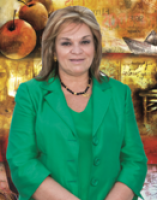
Ana Sylvia Ramirez
CEO of the Instituto Guatemalteco Americano, Guatemala’s Bi-National Center
I have been involved with many different charitable organizations which seek to improve lives and raise hope for people of different backgrounds. Like those organizations, TIRF encompasses many goals affecting the global society through education. TIRF is the type of organization that brings about change and educational advancement through the research it promotes. It is a quiet yet highly important job that may go unnoticed, but not unfelt. TIRF hopes to be a major force influencing English language learning throughout the world.
This task is especially important, since English is a gateway to an array of opportunities for people across industries and countries. In the Central American and Caribbean region, people are seeing an opening of opportunities for study and work abroad as a result of being able to communicate in English. This ability is directly linked to the effort and hard work of many English teaching support entities, of which TIRF is one. TIRF, however, is highly differentiated from the rest in the fact that its leading members are highly recognized and greatly committed individuals in the world of English language teaching. There is no better option than to have key experts in the field be in charge of leading change, as it happens with TIRF. Donating to TIRF is contributing to a globally beneficial change. It is contributing to the world society and the improvement of millions of lives across the globe.

MaryAnn Christison
Professor, Applied Linguistics, University of Utah
Over the past four years, I have had the privilege of serving TIRF as Chair of its Research Advisory Committee (RAC). The RAC is responsible for adjudicating doctoral dissertation grant (DDG) proposals and for interacting with doctoral students who are awarded these grants. I cannot begin to tell you how pleasurable it is to interact with these young scholars; the enthusiasm they have for their research and the excitement they express at receiving these awards is truly contagious! I give to TIRF for a number of reasons, but high on my list of reasons is the desire to support novice researchers in our field and to further important research related to TIRF’s research priorities. When I give to TIRF, I think of the DDG recipients, their happy faces, and their pleasure at having their research recognized. Indeed, there is a human face to my giving!
Over the last decade, TIRF has influenced so many young scholars with its grant giving program. I am pleased to have been a part of this process and urge you to join me in furthering TIRF’s work. Please visit http://www.tirfonline.org/research-grants/ to see the list of DDG recipients and look at their work.

Muhammed Abdel Latif
Lecturer of ELT/TESOL, Cairo University
The first time I heard about TIRF was at the beginning of 2008 when the Foundation started accepting applications for the first round of the Sheikh Nahayan Doctoral Fellowships. I was lucky to be one of the three applicants receiving this Fellowship in the competition. Since that time and through my continuous communication with its members and current Chair, Professor Kathi Bailey, I found TIRF to be a very supportive organization to English language researchers and research at all levels. That is why I decided to support TIRF. As their website shows, TIRF has sponsored TESOL researchers from all the world’s continents (except Antarctica).
Additionally, TIRF has unique publication projects, provides free English language education resources, offers professional services, and organizes international dissemination events. I believe that supporting TIRF activities and initiatives means not only promoting high-quality TESOL research projects and events, but also helping to connect distinguished language education researchers and supporting the good TESOL research and teaching culture and practices worldwide.

Ching-Ni Hsieh
Senior Research Project Manager, Educational Testing Service
TIRF truly cares about making a positive impact. When I donate to TIRF, I feel grateful, particularly as I myself received a Doctoral Dissertation Grant. By donating to TIRF, I know I am supporting a cause with a proven track record in making a difference in language education and research worldwide.

Rebecca Kersnar
Teaching and Learning Specialist, California State University of Monterey Bay
I’ve been donating to TIRF for years because I believe in the Foundation’s mission: to support original research and excellent practices in the teaching and learning of English that will ultimately aid the success of English language learners worldwide. It feels good to give to an organization that promotes innovation in our field, and, in particular, in my own classroom. Contributing to TIRF is also my way of paying it forward to honor those who have guided my education and career as an MA TESOL student and professional.
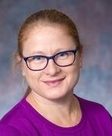
Polina Vinogradova
TESOL Program Director, American University
I give to TIRF because I find it very important to support cutting-edge research in English language education, especially research done by rising scholars from different parts of the world – research that actually makes a difference not only in the advancement of the field of TESOL, but in the lives of English language learners and their teachers. As a recipient of a Doctoral Dissertation Grant from TIRF, I am also happy (and very grateful) to be able to give back to the organization whose funding made a significant difference for me and my work.
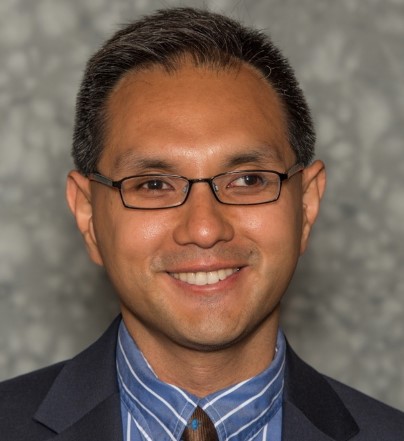
Peter De Costa
Associate Professor, Department of Linguistics, Michigan State University
As a language educator, I am one of many individual donors whose interests are aligned with TIRF’s enduring commitment to investigating issues in language learning and teaching. While my modest donations are certainly not in the same league as some of the corporate sponsors that also support TIRF’s mission, I continue to donate to the Foundation because its work is a sound investment in the future of language education. A prime example is the Foundation’s Doctoral Dissertation Grants, which have helped nurture the next generation of language researchers and whose work has had key pedagogical, research, and policy implications. Your funds will be wisely and prudently invested, administered, and distributed by TIRF’s highly capable Board of Trustees, whose members have steered the Foundation over the past 20 years.

Mansoor Ali Al-Surmi
English Lecturer and Program Coordinator, Qatar University
Anyone familiar with TIRF, whether as a student or a professional in language education, would certainly know why people donate to TIRF. TIRF’s mission of informing our classrooms’ practices and language policies based on empirical research is vital in contributing to the advances in our field. The momentous impact TIRF has left through the projects it supports, the publications it issues, the grants it awards, the services it offers, and the resources it makes available leave no doubt that this non-profit organization should continue its legacy, and this is why I feel the urge to donate!
Personally, as a former PhD student and as a professional in the field, I benefited from TIRF and I feel giving back to TIRF will benefit others. I was one of the recipients of the Sheikh Nahayan Doctoral Fellowship, which was managed and awarded by TIRF. When I received the award, of course, I was so happy, but what really struck me is how such awards make a big difference in helping doctoral students and researchers reach their dreams, and how life changing they are! I have carried that feeling with me since that time, and by giving back, I hope I can make a difference in someone’s professional life.
As a professional now, I also make use of the many resources available through TIRF and I can sense how empowering these available resources are to those who do not have access to such information otherwise. There are many professionals all over the world who may not enjoy the privilege of having a library with access to the major research databases, and who would like to advance their research agenda and/or professional knowledge. Here is where TIRF comes in, and I feel by supporting TIRF, I am supporting my fellow colleagues in the field. If you are reading this, I encourage you to donate, whatever the amount is. Believe me, by doing so, you are making a real difference!

Jenny Rose Jiménez
7th & 8th Grade Spanish Teacher, Diablo View Middle School in Clayton, CA
As a public school language teacher, I often feel that language education is overlooked. We may not have control over the resources we receive or our class sizes, but we do have control over our teaching methodology. I started out teaching as I had been taught, but implementing current research has helped me become a more efficient and effective language teacher. I donate monthly to TIRF (via an automatic recurring PayPal donation on TIRF’s website) because I want to continually evolve as a teacher and to help others investigate topics that will help me achieve my goal.

Juan Carlos Gallégo and Beth Borkowski
Professor of TESOL and Spanish, Cal State Fullerton; Resource Teacher, Saddleback Valley Unified School District
We donate to TIRF because of the excellent mentoring we received from our professors, among them, Dr. Russ Campbell, one of TIRF’s first Trustees. He and so many others we encountered in our academic lives gave their time and talents generously to us and to the myriad of students with whom they crossed paths. Our contribution is a way to give back and to help students and young professionals reach their potential and keep contributing to our important and relevant field of study and work.
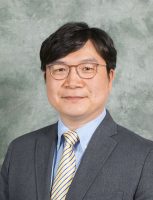
Jaehan Park
Past DDG Recipient
After experiencing how TIRF can change a researcher’s life (mine), I decided to start giving back to the Foundation. I hope I will be able to continue to give to TIRF for my entire life. I was a junior researcher with serious doubts about my research, but TIRF’s Doctoral Dissertation Grant made a significant impact on my life. It granted me the much-needed recognition that my research was worthy to continue and finish. In fact, TIRF did much more than provide financial support. What was completely unexpected was that there was a large group of senior TESOL researchers who welcomed me into their community under the name of TIRF. It was a transformative experience for me, and I decided that I should start giving to TIRF. Potential donors, please know that your gift to TIRF offers much more than financial assistance for junior researchers. It will fuel the TESOL research community’s noble work of supporting and mentoring junior researchers who are carrying out meaningful work through research.
In this section, we share notes from several of our past DDG recipients. Their notes communicate how their awards were used to support their research endeavors, and these individuals also thank donors for their contributions.
We have invited some of our Doctoral Dissertation Grant (DDG) recipients to share with our readers how the DDG funding has impacted their studies and lives. Our grant recipients’ messages are printed below, and links to their studies are provided.
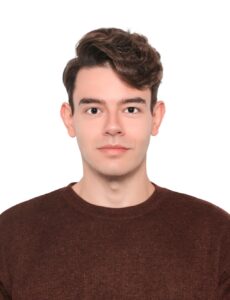 Eldin Milak (2022 DDG Awardee, Sungkyunkwan University): From the outset of my studies in linguistics, I was intrigued by the relationship between languages and the visual symbols we use to represent them. The ability to externalize and mark thought and language in the form of material signs which can traverse time and space, is perhaps one of humankind’s greatest achievements.
Eldin Milak (2022 DDG Awardee, Sungkyunkwan University): From the outset of my studies in linguistics, I was intrigued by the relationship between languages and the visual symbols we use to represent them. The ability to externalize and mark thought and language in the form of material signs which can traverse time and space, is perhaps one of humankind’s greatest achievements.
Having lived in South Korea for the past four years, I have become sensitized to the variety of ways in which different scripts can be used to reach different audiences, even if the linguistic message is the same. Unlike many Western contexts, where the prevalent account of language and script sees them as one and the same, scripts in the spaces of East Asia produce unique visual settings in which numerous systems and symbols compete for dominance, subvert expectations, and reproduce identities, histories, and nations. My aim is to describe this landscape to the best of my ability, and thanks to your generous contributions, I am much closer to that goal.
Your support is giving me the necessary encouragement to continue my research. As the funding for Humanities is running low around the world, student researchers like me are increasingly giving up on the work they love for fear of financial insecurity. Grants such as the DDGs remind us that the work we do is valuable and important, and that there are many individuals out there who are vested in improving our societies in ways which do not entail just economic growth and profit. As a scholar interested in exploring aspects of reality which are hidden in plain sight, I am very grateful for individuals such as yourself, who are able to maintain long-term vision in an increasingly shortsighted global order.
Elise Brittain (2022 DDG Awardee, University of Texas at San Antonio): 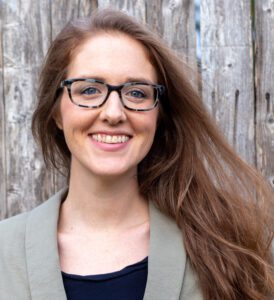 This funding opportunity provided by TIRF will provide access to more accuracy in my work with the purchase of video and audio equipment. These tools will support higher quality observation and interview data that offer more thorough and accurate observation and transcription. This funding may also support the purchase of other research supports, including transcription software and the time of research assistants in Uzbekistan. These supports will be invaluable to efficiency of data collection but also improved analysis.
This funding opportunity provided by TIRF will provide access to more accuracy in my work with the purchase of video and audio equipment. These tools will support higher quality observation and interview data that offer more thorough and accurate observation and transcription. This funding may also support the purchase of other research supports, including transcription software and the time of research assistants in Uzbekistan. These supports will be invaluable to efficiency of data collection but also improved analysis.
 Emma Chen (2022 DDG Awardee, University of Saskatchewan): The TIRF funding will be greatly helpful to me in my doctoral journey, on research expenses and dissemination both in academia and in communities.
Emma Chen (2022 DDG Awardee, University of Saskatchewan): The TIRF funding will be greatly helpful to me in my doctoral journey, on research expenses and dissemination both in academia and in communities.
With the TIRF funding, I will also be able to disseminate the research findings in various ways: peer-reviewed articles, such as journal publications and edited academic book chapters; conference presentations, including local, national, and international conferences in the fields of linguistics, education, and family studies; invited talks at local, national, international K-12 schools and higher education institutions; media interviews and articles; and finally, articles in Chinese so parents, children, and youth in Chinese immigrant communities can have access to the stories of their own.
 Eunhae Cho (2022 DDG Awardee, Pennsylvania State University): With the TIRF funding, I will also be able to disseminate the research findings in various ways: peer-reviewed articles, such as journal publications and edited academic book chapters; conference presentations, including local, national, and international conferences in the fields of linguistics, education, and family studies; invited talks at local, national, international K-12 schools and higher education institutions; media interviews and articles; and finally, articles in Chinese so parents, children, and youth in Chinese immigrant communities can have access to the stories of their own.
Eunhae Cho (2022 DDG Awardee, Pennsylvania State University): With the TIRF funding, I will also be able to disseminate the research findings in various ways: peer-reviewed articles, such as journal publications and edited academic book chapters; conference presentations, including local, national, and international conferences in the fields of linguistics, education, and family studies; invited talks at local, national, international K-12 schools and higher education institutions; media interviews and articles; and finally, articles in Chinese so parents, children, and youth in Chinese immigrant communities can have access to the stories of their own.
I would like to express my sincere gratitude for making this possible. I am thrilled to learn of my selection for this honor, and I am deeply appreciative of your support. This will allow me to focus more on my remaining doctoral journal, especially on writing the dissertation process: data collection, analysis, and writing.
By the end of the study, student participants will either introduce their parents to me or they will interview one of their parents so that I can learn about their child-rearing practices and their social and cultural backgrounds. Parents’ voices are essential both for data analysis and for understanding how familial values play a role in helping determine children’s social relations.
Your generosity will add significant luster to my dissertation project and I am once again appreciative of this honor.
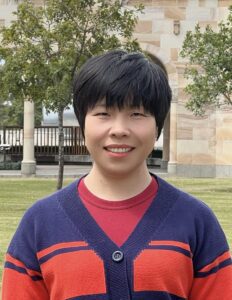 Lanting Wang (2022 DDG Awardee, University of Queensland, Australia): Research funding is of great value for knowledge creation and dissemination. It influences the extent to which the research problems are addressed, and research outputs are produced and disseminated.
Lanting Wang (2022 DDG Awardee, University of Queensland, Australia): Research funding is of great value for knowledge creation and dissemination. It influences the extent to which the research problems are addressed, and research outputs are produced and disseminated.
Receiving a TIRF DDG will make some contributions to my project in a range of ways such as: a) reducing my financial concern in some way during my PhD candidature; b) generating positive effects on the quantity and quality of publication outputs; c) fostering dissemination; d) increases in citation metrics; e) inspiring new ideas for further research; and f) improving my overall research performance.
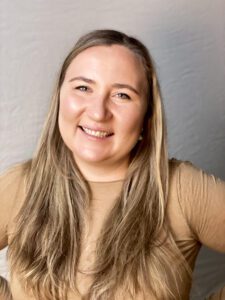 Maria Kostromitina (2022 DDG Awardee, Northern Arizona University): I would like to express my genuine gratitude for your support of my dissertation study. Your recognition of my research is the highest praise a graduate student could receive, and I am extremely appreciative of the opportunities the grant will provide on my doctoral journey.
Maria Kostromitina (2022 DDG Awardee, Northern Arizona University): I would like to express my genuine gratitude for your support of my dissertation study. Your recognition of my research is the highest praise a graduate student could receive, and I am extremely appreciative of the opportunities the grant will provide on my doctoral journey.
The funding I have been awarded will be instrumental in ensuring the success of my dissertation.
The grant will be extremely helpful for the dissemination of the study results. With the funding, I will be able to present the results of my study at large international conferences that are attended by English teachers, learners, digital platform developers, curriculum designers, and policymakers from all over the world. Thus, support from TIRF will be substantial not only in conducting the study but also in making the developed platform known and available for a larger target audience.
This award is helpful not only because it will assist me in completing my dissertation study, but also because of the value and weight it brings to my research. As a language educator and future applied linguist, I aspire to facilitate English learners’ success in global communication. The support of TIRF indicates that the research I do aligns with the mission of the foundation in serving English educators and learners around the world.
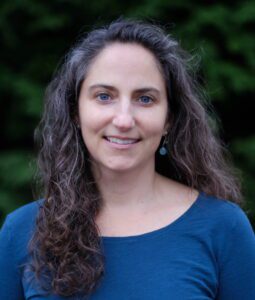 Martha Sandstead (2022 DDG Awardee, Oregon State University): The TIRF grant will support the labor-intensive transcription process which is necessary for discourse analysis. The funds will also allow me to use data analysis software that helps me be thorough and systematic in the coding process.
Martha Sandstead (2022 DDG Awardee, Oregon State University): The TIRF grant will support the labor-intensive transcription process which is necessary for discourse analysis. The funds will also allow me to use data analysis software that helps me be thorough and systematic in the coding process.
The qualitative and focused nature of my research requires a considerable time commitment from my participants. Such a commitment from the teachers is essential to explore my research questions deeply and to include teachers’ inquiry as part of the research. As findings emerge, I will share them with my participant teachers to get their thoughts and feedback on my analyses.
Finally, the funds will support my travel and conferences fees to present the findings of this research. I have submitted proposals to present at Teachers of English for Speakers of Other Languages Annual meeting in March 2022. This proposal has already been accepted and I will present with my participating teachers. In addition, I have submitted proposals to present at the American Association of Applied Linguistics annual meeting as well as American Education Research Association Annual Meeting.
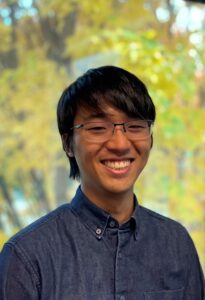 Masaki Eguchi (2022 DDG Awardee, University of Oregon): The contribution that the TIRF DDG makes to my Ph.D. study is important because the award allows me to create a rigorous hand-annotated dataset, which would contribute not only to my Ph.D. project but also to the entire field of Applied Natural Language Processing (NLP), corpus linguistics, and language assessment. It is hoped that, with the support from TIRF DDG, the research will produce a quality hand-annotated dataset of academic English, which is later accessed by any researchers working on second language assessment and applied NLP.
Masaki Eguchi (2022 DDG Awardee, University of Oregon): The contribution that the TIRF DDG makes to my Ph.D. study is important because the award allows me to create a rigorous hand-annotated dataset, which would contribute not only to my Ph.D. project but also to the entire field of Applied Natural Language Processing (NLP), corpus linguistics, and language assessment. It is hoped that, with the support from TIRF DDG, the research will produce a quality hand-annotated dataset of academic English, which is later accessed by any researchers working on second language assessment and applied NLP.
 Megan Heise (2022 DDG Awardee, Russell N. Campbell Awardee, Indiana University of Pennsylvania): TIRF’s generous funding, through the 2022 Russell N. Campbell DDG Award, enables me to conduct my field research. Without this support, I would not be able to provide the zine-making workshop, cover my transportation and parking expenses in travelling to the workshop, access necessary interpretation and translation services, share the work at conferences, and provide opportunities for participants to disseminate their work on their own terms. In other words, TIRF’s funding has allowed me to access the necessary personnel, transportation, communication, dissemination opportunities, and supplies that are crucial to the success of my project, both for me and for equitable and reciprocal exchange with my participants.
Megan Heise (2022 DDG Awardee, Russell N. Campbell Awardee, Indiana University of Pennsylvania): TIRF’s generous funding, through the 2022 Russell N. Campbell DDG Award, enables me to conduct my field research. Without this support, I would not be able to provide the zine-making workshop, cover my transportation and parking expenses in travelling to the workshop, access necessary interpretation and translation services, share the work at conferences, and provide opportunities for participants to disseminate their work on their own terms. In other words, TIRF’s funding has allowed me to access the necessary personnel, transportation, communication, dissemination opportunities, and supplies that are crucial to the success of my project, both for me and for equitable and reciprocal exchange with my participants.
Given the scale of this project and its financial needs, this work would simply not be possible, and not uphold my core principles of equity and reciprocity, without TIRF’s support, for which I remain immensely grateful.
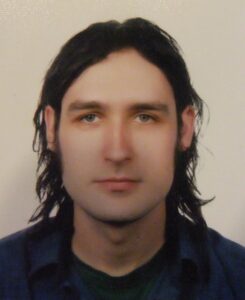 Michael Koslowski (2022 DDG Awardee, University of Toronto): I would like to express my gratitude to the Foundation and partners for the support and opportunity to advance my dissertation process and career as a researcher.
Michael Koslowski (2022 DDG Awardee, University of Toronto): I would like to express my gratitude to the Foundation and partners for the support and opportunity to advance my dissertation process and career as a researcher.
The funding will be integral to my doctoral journey in two key ways. First, it will contribute to funding my data collection in Japan, which includes in-person classroom observations and follow-up interviews with instructors. I had initially planned to go to Japan in April 2020, but with COVID-19 border closures, this was not possible until now, and so I am very excited to finally be able to meet my participants and add this final piece of my mixed-methods research design. Secondly, the TIRF funding will enable dissemination of my research through major conferences, such as AAAL, TESOL, CAAL, and AILA. I look forward to representing TIRF at these conferences and contributing my research findings to important discussions and advances in our field.
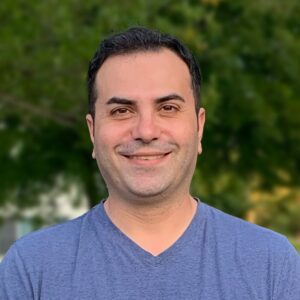 Reza Neiriznaghadehi (2022 DDG Awardee, Iowa State University): Developing a fully automated test of speaking that approximates real-world conversation has been my academic goal since I started my master’s program in English language teaching.
Reza Neiriznaghadehi (2022 DDG Awardee, Iowa State University): Developing a fully automated test of speaking that approximates real-world conversation has been my academic goal since I started my master’s program in English language teaching.
At this point, I have prepared all the requirements to achieve the goal of creating a fully automated speaking test based on the latest understanding of oral communication in the field. The next steps involve collecting data and analyzing them, and these steps require substantial financial support which the valuable Doctoral Dissertation Grant from TIRF can provide.
The TIRF DDG can help meet all my expenses, and it will make possible my dissertation project and longtime dream. I am forever grateful for this invaluable grant that made achieving my dream possible. I really hope to respond to the oral communication assessment needs of many language teaching entities and students who lack the resources to evaluate their speaking ability reliably and in an affordable way.
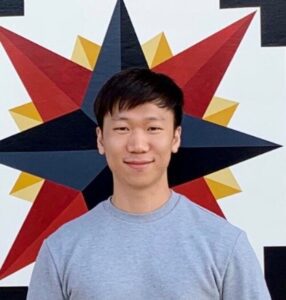 Woongsik Choi (2022 DDG Awardee, Purdue University): The TIRF Doctoral Dissertation Grant is greatly helpful to me in my doctoral journey because this grant enables my data analysis and international conference presentations.
Woongsik Choi (2022 DDG Awardee, Purdue University): The TIRF Doctoral Dissertation Grant is greatly helpful to me in my doctoral journey because this grant enables my data analysis and international conference presentations.
My research study involves multilingual learners who speak Spanish, Lingala, and French. More than half of the classroom conversations were done in Spanish; during the interview, the students used some Spanish and Lingala. Thus, to analyze collected data accurately, I will need to collaborate with Spanish and Lingala-speaking multilinguals.
I will present the study findings at international academic conferences. I have already submitted proposals for paper presentations to American Association for Applied Linguistics (AAAL) and American Education Research Association (AERA) Annual Meeting. I will use the grant to support registration fees and/or hotels needed for academic conference participation.
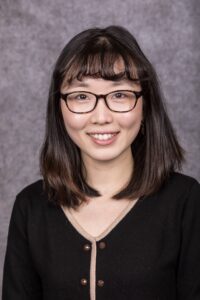 Yuchan Gao (2022 DDG Awardee, Arizona State University): The award TIRF DDG will help me subscribe to software used to conduct qualitative analyses to investigate participants’ targeted language use as well as multimodal interaction patterns. Moreover, a part of the funding will be used to compensate research participants and show appreciation for their willingness to be part of this research study. Lastly, one part of the grant will be used to support travel expenses to several academic conferences, including some where I have already presented my work and others that are upcoming in 2023.
Yuchan Gao (2022 DDG Awardee, Arizona State University): The award TIRF DDG will help me subscribe to software used to conduct qualitative analyses to investigate participants’ targeted language use as well as multimodal interaction patterns. Moreover, a part of the funding will be used to compensate research participants and show appreciation for their willingness to be part of this research study. Lastly, one part of the grant will be used to support travel expenses to several academic conferences, including some where I have already presented my work and others that are upcoming in 2023.
TIRF Supporters & Partners
Founder ($75,000 and up)
| Betty Azar
British Council Cambridge English Language Assessment Cambridge University Press Educational Testing Service |
Joan Morley
His Highness Sheikh Nahayan bin Mubarak al Nahayan Heinle Cengage TESOL Association Pearson Education IELTS, International |
Benefactor ($5,000 to $74,999)
| James E. and Penelope Alatis
Anaheim University Kathleen Bailey Richard Boyum Russell Campbell La Centra-Sumerlin Foundation Donna Christian MaryAnn Christison JoAnn Crandall In Memory of Bob Cullen Andy Curtis and Liying Cheng (In Memory of Manboadh Sookdeo) Lorraine de Matos Delta Systems Company, Inc. Omie Kerr |
National Geographic Society
Michael McCarthy Ordinate Corporation Patsy Lightbown Jun Liu David Nunan Robert and Adelaide Parsons Lynn Savage (In Memory of Kent Sutherland) Barbara Schwarte The Society for Testing English Proficiency, Inc. The Spencer Foundation G. Richard Tucker The Walt Disney Company |
Patron ($1,000 to $4,999)
| Alta Book Center Publishers
Neil J. Anderson Edward and Ann Anthony Christopher Benbrock Mary and William Bliss Deena Boraie H. Douglas and Mary Brown Marjorie Campbell Antonieta Celani Christine Coombe Kees de Bot Joanne Dresner and Jerry Linsner Sol Dresner Patricia Duff (In Honor of Dr. Yehia El-Ezabi and in Memory of His Beloved Wife, Amira) Yehia El-Ezabi (In Memory of Amira) Melinda Erickson and Neil Joeck Donald Freeman and Kathleen Graves Keith Folse Instituto Guatemalteco Americano |
Frederick Jenks
Diane Larsen-Freeman & Elliot Freeman Mary Lou McCloskey Steven and Judith Molinsky Dr. Elahé Mir-Djalali Omidyar (Chair and President, Roshan Cultural Heritage Institute) Adrian Palmer Christina Paulston Joy Peyton (In Honor of Donna Christian) Robert Ranieri Patricia Richard-Amato Gwendolyn (Tippy) Schwabe Ali Al Sharhan John Swales Carol Taylor Jennifer Uhler Catherine Walter Kensaku Yoshida |
Supporter (up to $999)
| Muhammad Muhammad Mahmoud
Abdel Latif Anthony Acevedo Mihran Agbabian Anne Akamatsu Noriko Akatsuka Mansoor Al-Surmi Kholoud Al-Thubaiti Mark Algren Jenna Altherr Flores Charles S. Amorosino, Jr Isabella Anikst Family of Edward Mason Anthony, Jr. Angelica Arroyo Tania Azores Lyle Bachman Federica Barbieri Martha Bigelow Joe Bookbinder Gordon & Elizabeth Borkowski Wyatt Boykin Anne Boynton-Trigg Belinda Braunstein Sandra Briggs Sarah Briggs Donna Brinton James Dean Brown Anne Burns Frances Butler (In Memory of Dr. Penny McKay) Frances & Bill Cahill Cherry Campbell Marianne Celce-Murcia Anna Uhl Chamot ChameleonJohn Coupons Lixia Cheng Diane Childs Julie Choi Virginia Christopher Beth Clark-Gareca Thomas Cobb Andrew Cohen Graham Crookes Jessie Curtis Mohammed Dahbi Ryan Damerow Fred Davidson Peter De Costa Carmen DeNeve Robert J. Dickey Heidi Dittrich Richard Donato Roderick Ellis In Honor of David E. Eskey Dan Douglas Aymen Elsheikh Eleanor Eskey Fatima Esseili Janet Eyring Maryruth and David Farnsworth Jeffrey Finlay Kathleen Ford Randi Freeman Jan Frodesen Juan Carlos Gallego & Elizabeth Borkowski Fiodhna Gardiner-Hyland Alice and Norman Gary William Gaskill April Ginther Jean Glasser Lynn Goldstein Chris Golston and Cheryl Chan Charles Goodwin Judy Gough Michael Gyori Stephen Hall Enas Abdullah Rajab Hammad Zhaohong Han Elizabeth Hanson-Smith Thompson Linda Harklau Walter and Dayle Hartnett Evelyn Hatch Barbara Hawkins John Hedgcock Jane Hoelker (In Honor of Jun Liu) Dennis Hogan Junko Hondo Nancy Hornberger Ching-Ni Hsieh Kylie Hsu Phil Hubbard Instruments for Research Into Second Language Learning (IRIS) Joan Jamieson Linda Jensen Darling David and Ann Johns Olga Kagan Ann Kerr |
Kevin Jepson and Rebecca Kersnar
Omie Kerr Chin Kim Victoria Kimbrough Daisuke Kimura Hiromi Kinjo Joyce Kling Georgios Kormpas Anna Kramer Anna Krulatz Lorraine Kumpf Stuart Landers Ruth Larimer Lawrence Lawson & Karen Hamilton Sky Lantz-Wagner Mitch Legutke Michael Lessard-Clouston Philip Levine Zhuo Li Dilin Liu Heidi Liu Banerjee Lorena Llosa Joe Lo Bianco Longitude Research Grace Low Tomohisa Machida Le Duc Manh Numa Markee Ian McMaster Kara McBride Mary McGroarty and Patrick Deegan Craig and Mihwa Merrill Hirohide Mori Judith Moses Denise Murray Rosa Needleman Bonny Norton Carol Numrich Robert Ochsner Cheryl Andersen O’Colmain Rosemary Orlando Janet K. Orr Suzanne M. Overstreet Suzanne Panferov Reese Spiros Papageorgiou Jaehan Park Sujung Park Susan Part & Jonathan Kavesh Courtney Pahl Alan and Kathryn Paul Sabrina Peck Sherry Preiss (In Memory of Sam Lee) Will Radecki and Marie-Lise Bouscaren Lara Ravitch John Read Joy Reid Lyn Repath-Martos Dudley Reynolds Brandon Ryan Evon Ryan Takaharu Saito Joan Samara Amy Schlessman-Frost Christina Schoonmaker Maxine and Russell Schuh John and Beth Schumann Ali Fuad Selvi Younghee Sheen Joan Kang Shin Deborah J Short James and Lydia Stack Susan Stern Marguerite Ann Snow Charles Stansfield Fredricka L. Stoller Esther and Elsa Sunde John Swales Steven Talmy Jaala Thibault & Christopher Ball John Thorpe JennyRose Tobin Zuzana Tomas Yasuyo Tomita Jean Turner Aviva Ueno Christopher Van BoovenVal Vandervort Polina Vinogradova Chaoran Wang Neil Ward Paige Ware Donald Weasonforth Sara Weigle Rita Wong Shelley Wong-Pitts Rashelle & Dave Wynegar Bedrettin Yazan Nina Yoshida Emil Ysona |
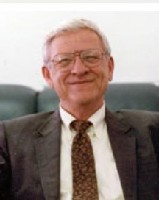
Each year during our Doctoral Dissertation Grants (DDG) competition, the highest rated DDG proposal is awarded in the name of the late Dr. Russell N. Campbell, who was the founding Chair of the TIRF Board of Trustees. For many years, he was the head of the TESL MA program and Applied Linguistics PhD program at UCLA. People who knew him remember Russ as a consummate administrator, visionary thinker, passionate teacher, and inspiring mentor.
Starting in 2023, TIRF began raising funds to establish an endowment to ensure its Russell N. Campbell DDG would be offered in perpetuity. To learn more about this fundraising campaign, please click here. If you would like to donate to the Russell N. Campbell fund, please click here.
There are two lists of donors shared below. One is for individuals who have donated to TIRF’s Russell N. Campbell DDG fund prior to our endowment campaign. The other shows donors who have supported the endowment we are raising in Russ’ name.
Russell N. Campbell Endowment Campaign Donors
Founding Donors ($5,000+)
Donna Christian
Kathi Bailey
Lorena Llosa
Patricia Duff
Friends of Russ (Under $5,000)
Allene Grognet
Andrew Cohen
Anna Krulatz
Brian Lynch
Center for Applied Linguistics
Ching-Ni Hsieh
Christopher Bernbrock
Denise Murray
Dianne Larsen-Freeman
Dick Tucker
Donna Brinton
James Dean Brown
Jean Turner
Jodi Crandall
Joy Kreeft Peyton
Juan Carlos Gallego
Kathryn Lindholm-Leary
Lyle Bachman
Marguerite Ann Snow
MaryAnn Christison
Mikyung Wolf
Mimi Met
Nancy Rhodes
Numa Markee
Patrick Deegan & Mary McGroarty
Paul Meighan
Polina Vinogradova
Richard Duran
Sabrina Peck
Scott Grapin
Steven Talmy
Terry Langendoen
Walter and Dayle Hartnett
William Gaskill
Yi Cao
Russell N. Campbell DDG Supporters (2000-2022)
Alan and Kathryn Paul
Alice and Norman Gary
Andrew Cohen
Barbara Hawkins
Carmen DeNeve
Charles Goodwin
Cherry Campbell
Cheryl Andersen O’Colmain
Chris Golston and Cheryl Chan
Christopher Benbrock
Craig and Mihwa Merrill
Donald Weasonforth
Donna Brinton
Eleanor Eskey
Elliot Freeman
Evelyn Hatch
Frances Butler
Frances E. Cahill
Fred Davidson
H. Douglas and Mary Brown
James Dean Brown
Jan Frodeson
Janet Eyring
Jeffrey Finlay
Joan Samara
John and Beth Schumann
Juan Carlos Gallego & Elizabeth Borkowski
Judy Gough
Kathi Bailey
Kathleen Ford
Linda Jensen Darling
Lorena Llosa
Lorraine Kumpf
Lyn Repath-Martos
Marguerite Ann Snow
Marianne Celce-Murcia
Marjorie Campbell
Maxine and Russell Schuh
Melinda Erickson and Neil Joeck
Numa Markee
Olga Kagan
Patrick Deegan
Philip Levine
Robert Ochsner
Rosa Needleman
Ruth Larimer
Sabrina Peck
Sara Weigle
Susan and Sheldon Stern
Walter and Dayle Hartnett
William Gaskill
Advertising
Board and Staff Meals
Heinle Cengage
Pearson Education
Board Meeting Space
Center for Applied Linguistics, Washington, DC
Heinle Cengage
Pearson Education
TESOL International Association
Event Hosting
Cultura Inglesa, São Paulo
Instituto Guatemalteco Americano
Middlebury Institute of International Studies at Monterey (MIIS)
Ministry of Education, United Arab Emirates
TESOL International Association
Fundraising
Robert Broom
Anita Krishnan
Tim Marquette
Office Space
Brigham Young University
Carnegie Mellon University
Georgetown University
Middlebury Institute of International Studies at Monterey
School for International Training
TESOL International Association
University of Maryland – Baltimore County
University of Michigan
Online Donations Management
Photographs
Amanda Bradford, Panita Chobnitas, Ryan Damerow, Stephanie Farrell, Kevin Jepson, Yunjung Kim, Jill Neuendorff, Lauren Todaro, Kensaku Yoshida, and Sky Lantz-WagnerPlaques
Cambridge ESOL Examinations
Pearson Education
Printing, Production, Design, & Swag
Richard Boyum
British Council
Cultura Inglesa, São Paulo
Heinle Cengage Learning
Instituto Guatemalteco Americano
Jeonghoon Kim
Meredith Morgan (Illustrator, Graphic Designer)
National Geographic Learning
Pearson Education
Publicity
American Association for Applied Linguistics
American Council on the Teaching of Foreign Languages
British Council
CATESOL
Center for Applied Linguistics
Cultura Inglesa, São Paulo
Google Checkout and Google AdWords
Instituto Guatemalteco Americano
International Language Testing Association
TESOL International Association
TESOL Arabia
U.S. State Department
Refreshments
Alta Books
Kathi Bailey
MaryAnn Christison
Lorraine de Matos
David Nunan
Staff Lodging and Travel
Kathi Bailey
Cultura Inglesa, São Paulo
Donald Freeman and Kathleen Graves
Instituto Guatemalteco Americano
David Nunan
Technology Services
Kathi Bailey
Heinle Cengage
Translation Services
Shani Abergel, Badr Al Jahwari, Namju Cha, Wallace Chen, Rebecca Cheney, Tetsuko Fukawa, Lee Eisenberg, Lawrence Hsu, Heather Kokesch, Sky Lantz-Wagner, Yi-Hua Lin, Courtney Pahl, Kristina Swamy, Xueting Wang, Jack Yang, and Tony Zeuli
Website Consulting
Byte Technology
Website Hosting
University of Utah

